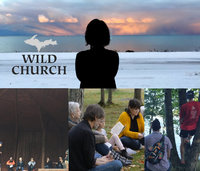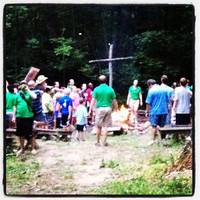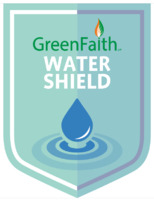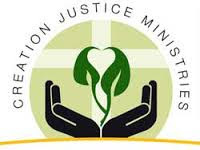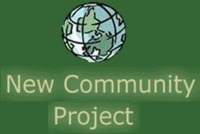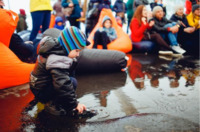Search
117 items
-
Engaged Organizations: Springs Dominican motherhouse, Columbus, OH
The Springs Dominican motherhouse hosts 150 individuals (maintaining 76 beds). Initial green projects included replacing their lights with LED bulbs and replacing seven boilers, which had been there since the 1940s, with just one new one. Recently, Innovative Organic Recycling composting company had been invited to speak with house members, and their composting program took off from there. Jean Sylvester, Motherhouse Administrator, had found it easy to do at her own house and was also aware of Shepherd’s Corner success with it. Both staff and residents adapted quickly and the process is streamlined at this point. Composting is done by the sisters themselves, with administration providing the bags and cans. In addition to composting food, even the bones, all of plates and cups, including coffee cups, can be composted as well.
For administration, this is a business model that makes practical sense. Management had been quoted at $35 per pick up, so they decided to give it a two-week trial period. Overall, composting has been a "win-win" for them, with its ease of implementation and minimal ongoing efforts. In addition, their dock smells better because the food waste bags are not left open in the dumpster now. There is also less garbage for RUMPKE to take, so the project cost savings of waste management will be reaped over time . -
Engaged Organizations: Shepherd's Corner, Blacklick, OH
In 1966, the Dominican Sisters of Peace had purchased 160 acres of land in Blacklick, Ohio, for what eventually evolved into the formation of various farms and ecology centers. Shepherd’s Corner is one part of this larger network. Srs. Rosie Ann Van Buren and Marguerite Chandler maintain their 1.5 acres well and use the area predominantly for educational purposes, with most food (usually 60-65% but more recently 80%) donated to local food pantries.
The following are some of the current activities and events that take place at Shepherd’s Corner: Sorting donated food from Fresh Market's food waste into compost or food to animals, Shepherd’s Fest, 5K – their main fundraiser, walking trails throughout the property, groups volunteering to garden, St. Charles high school students volunteering one Saturday per month, Meet the Animals, space rentals, school groups walk through the woods, small farm stand every Tuesday (run by Julie Laudick), slide show, calendar designed with a plan of action or set of events for each month. Srs. Rosie and Marguerite also monitor the water for Blacklick Creek, along with other individuals who are affiliated with county soil and water work.
Shepherd's Corner offers several group activities as well:
School groups and other youth groups, grades 3, 4, and 5 are invited to Shepherd’s Corner for educational programs. Cost per student is based on length of program and supplies needed.
Adult groups can enjoy the space for tranquility meditation, and prayer. Staff is available to give tours and lead sessions on special topics such as spirituality, universe story, nature and gardening. Fees are based on length of program and services provided.
They also offer use of our space to groups whose mission is compatible with ours. Please contact Miranda Land at scecologycenter@gmail.com regarding facility rental. -
Creation Care Tips Winter 2020
This Creation Care bulletin insert provides a message from Pope Francis on how even small actions on a daily basis can impact the earth and fellow humans in great ways. It focuses on reducing waste by composting, cutting back on purchases, and recycling. -
Engaged Organizations: Wild Church Network
The Wild Church Network website describes their focus on spiritually re-connecting to the outdoors:
"We are a growing network of pastors and spiritual leaders, who have made bold moves to launch new expressions of church outside to re-acquaint, re-cover, and re-member our congregations as loving participants of a larger community. In this age of mass extinctions, we feel burdened by the love of Christ to invite people into direct relationship with some of the most vulnerable victims of our destructive culture: our land, our waters, the creatures with whom we share our homes.
And, there, people remember that they belong to a larger beloved community. Along the way, we have remembered that our Christian tradition of spiritual transformation has always been rooted in the actual local wilderness." -
Engaged Organizations: Lutheran Outdoor Ministries in Ohio
Lutheran Outdoor Ministries in Ohio discuss their camp facilities, their mission, and their vision on their website:
"Lutheran Outdoor Ministries in Ohio owns and operates 2 camp facilities, Camp Luther and Lutheran, Memorial Camp with support and direction from the Evangelical Lutheran Church of America.
Mission: Bringing people together to experience Christ through natural settings and programs.
Vision: Connecting all people to faith and nature for a changing world."
The 5th graders at St. Vincent de Paul in Mt. Vernon, OH participate annually in the summer camp program at Lutheran Memorial Camp. -
Bloomberg Business Posts Infographic to Show “What’s Really Warming the World?”
Occasionally, an outstanding graphic emerges to help us understand some of the complexities of climate science, such as this recent series of graphs published by Bloomberg Business. If you have wondered how all the various factors and forcings involved in global warming interact, these infographics based on data from NASA’s Goddard Institute for Space Studies are very helpful. -
The Little Minyan Kehilah/Sukkat Shalom
The Little Minyan is a Reconstructionist/Jewish Renewal congregation located in the Clintonville neighborhood of Columbus, Ohio. In this article, Rabbi Jessica K. Shimberg, the congregation’s spiritual leader, discusses the recent name change to Sukkat Shalom. She offers that the congregation has grown to the extent that they chose a new name that does not include the word "little" in it. The congregation is heavily involved in community outreach and provides an outlet for community service and spirituality. It is committed to sharing resources to help the planet. -
Muslims and Water Conservation
The United Nations recognizes World Water Day on March 22. The Muslim community is taking this message to heart with discussions of water conservation. The following excerpt provides a brief summary of the Muslim khutbah with regard to the topic of water scarcity:
"The purpose of today’s khutbah is to remind us that the conservation of water and more broadly environmental consciousness should be an integral part of what it means to be a conscientious Muslim. An environmentally conscious Muslim is someone who lives in reverence and harmony with nature and uses water and all other natural resources frugally and sparingly." -
Water Shield
Water Shield is a program hosted by GreenFaith that helps congregations learn how to conserve water as well as maintain high water quality. This program promotes stewardship, and can help gain a community recognition for their efforts in the environmental awareness world. Water Shield is an eco-merit badge that is bestowed upon faith-based institutions that have taken steps to conserve water, protect water quality, and mobilize its members and community to do the same at home. -
Changing the Columbia River Treaty
Many groups, including faith communities, have called for a restructuring of the Columbia River Treaty. The original treaty was written in 1964, and has become outdated. The people calling for the change want the river to be valued for its ecosystem services that were not included in the original treaty. -
World Help Providing Water for Kirinda, Uganda
World Help, a Christian organization, is raising money to provide clean drinking water to the people of Kirinda, Uganda. They are attempting to fund three major projects, a water well, piping, and irrigation. The lack of clean sources of water for the people who live here is causing diseases and additional hardships. -
A Sermon for World Water Day
Susan Barnett, founder of Faiths for Safe Water, brings attention to World Water Day by highlighting award-winning filmmaker and photographer, Haik Kocharian. Haik recently releasing, “Blessed by Water,” showing rare images of water in tradition, ceremony and spirituality as celebrated by the Christian Orthodox community in Ethiopia. Susan continues to discuss the concerns of clean water worldwide: 663 million men, women and children are forced to drink low quality water; and one third of the world's population don’t even have the dignity and safety of toilets. The article concludes by encouraging church leaders to use their collective voices to advocate for increased access to safe water and sanitation in order to improve global health, nutrition, poverty, gender equality, food security, human security, and peace. -
World Water Day Synopsis
The United Nations and the global community in general recognize World Water Day as a reminder that much of the world faces a global water, sanitation and hygiene crisis. 663 million people—comprising mostly the poorest and most marginalized in the world—live without access to safe drinking water. In addition 2.4 billion people lack access to improved sanitation. The article suggests various ways that individuals can contribute to improving the water conditions in these areas. -
WATERSHED: Replenishing Water Values for a Thirsty World
This site highlights the reports and videos and resources gathered to address world water resources, sponsored by the Vatican and many other partners. -
Christian Communities Respond to Trump’s Executive Order
President Trump signed an executive order on March 28 directing the EPA to review the Clean Power Plan. This executive order has the possibility to dismantle important climate change protections and fails to offer an alternative plan to protect our air quality and climate stability. Many Christian communities have responded to this action and made official statements on their thoughts and about protecting the Earth. -
Episcopal Diocese of Ohio: Bellwether Farm
Bellwether farm is a new camp and education center of the Episcopal Diocese of Ohio. It is meant to provide leadership development and teachings through sustainable farming, food production, and care of the environment. It is located in Wakeman Ohio, with the goals of informing, inspiring, and empowering leaders for a sustainable future. The buildings are models of green technology featuring passive buildings, renewable energy, and water reclamation systems. -
Church World Service to Withdraw from Paris Climate Agreement
Church World Service released a statement after the announcement that the United Stated will withdraw from the Paris agreement: “CWS strongly condemns President Trump’s decision to withdraw from the Paris Agreement. Coming at a time when the world is facing its largest humanitarian and refugee crisis since World War II, this decision will directly impact impoverished and vulnerable communities around the world and in the United States that are already facing the consequences of a changing climate.” -
New Community Project Creative Arts Page
The New Community Project created a creative arts page to offer resources for justice, peace, and care for creation. In the caring for creation section, there are skits, checklists, and worship resources all centered around this topic. -
A Hymn for Hurrican Relief
This article was written to showcase the hymn that was a tribute to prayers for the damage from the recent severe storms in Texas, Louisiana, Nepal, India, Bangladesh, the Caribbean, Florida, Georgia, and South Carolina. In addition to comforting those impacted by the storms, the hymn also serves as a message for government leaders to work for policies that help to counter climate change. -
Wade in the Water
Wade in the Water is a worship resource from the New Community Project. It calls for the stewardship of water and is a 20 minute worship service, including a hymn, about water as a precious resource. To read or download Wade in the Water, see below. -
Water Issues in Appalachia
Some people may think that water issues in the United States only exist in the west. This is far from the truth. In addition to algae bloom issues throughout the midwest, the Appalachian region of the United States has been experiencing severe water contamination due to mining and chemical spills for the past several years. Fortunately, the residents of this region are kept informed by the Catholic Committee of Appalachia. Once a year, residents from all over the state meet in one location to discuss the issues of their region and try to come up with solutions. -
Environmental Statement – Mennonite Church
Like many other religions, the Mennonite Church has released a statement about the need to take care of our environment. They are encouraging this attitude of caring for our planet among their members by using biblical text. It focuses on helping people choose simpler lifestyles, and seeking justice for the environment. -
The Sacredness of Water
This chapter from the student-written book “Emerging Perspectives on Religion and Environmental Values in America” explores the importance of water across religious traditions and modern life. It explores the importance of water for survival but also as a gift that frequently acts as a spiritual symbol. Below is the first paragraph of the chapter to introduce the discussion.
"Pick up any religious text and you are likely to find at least one reference to water. Whether it is used to cleanse, bathe, heal, restore, replenish, or purify: water is one of the most prolific symbols in major world religions, stretching through time, place, and culture. As human beings, this may come as no surprise seeing how our bodies are composed mostly of water, and we rely on it for our very survival – a truth that continues to become more resonant as the effects of climate change take hold in the forms of drought, rising temperatures, and natural disasters. Like many religious symbols, water appears in scripture, ritual and tradition through its simplicity and use in everyday life. In examining a variety of major world religions, namely Islam, Judaism, Hinduism and Christianity, connections between water as a common resource, and water as a sacred and holy gift become apparent. Drawing from these unique and similar understandings of water, we can begin to consider the spiritual motivations one might have in engaging in water conservation efforts. Furthermore, in exploring these religions specifically, we can identify some beliefs about water that may provide helpful wisdom in the face of more rational conversations surrounding water conservation. Because these religions have such strong relationships with water and large followings worldwide, there is hope that these connections between scripture and our contemporary crisis may be brought to life to move toward a more secure and just future." -
Scripture Sunday: Invitation to the Thirsty
"Walter Bruggeman has said that the task of the prophet is 'to nurture, nourish, and evoke a consciousness and perception alternative to the consciousness and perception of the dominant culture around us.' Here in Deutero-Isaiah, the Israelites who have been exiled are given a vision of hope, Isaiah is evoking a reality far different from what they know. In the previous chapter, God says, in one of my favorite verses, 'For a brief moment I abandoned you, but with deep compassion I will bring you back. In a surge of anger I hid my face from you for a moment, but with everlasting kindness I will have compassion on you… My unfailing love for you will not be shaken nor my covenant of peace be removed' (Isaiah 54:7-10). This is the climax of the second book of Isaiah, that God’s anger towards injustice and the consequences of it are momentary, but God’s compassion, love, and faithfulness are everlasting, something we can never be separated from. Isaiah 55 then flows into the specifics of that love. God’s invitation into divine care is one that freely gives water, food, and rest." -
A Bluer Theology: Protecting and Restoring God’s Marine Creation
"Blue Theology was founded in 2008 by Rev. Dan Paul and Rev. Deborah Streeter. Streeter coined the term “Blue Theology” as a theological approach that weaves together marine biology and Christian theology. Over the next few years, the Church, only blocks from the Pacific Ocean, began hosting weeklong groups to engage in learning-serving experiences with God’s marine creation. Over the last two years, Blue Theology Outposts have opened in Newport Beach, CA, Texas City, TX, and Beaufort, NC. The mission of the Blue Theology program is to provide learning and serving experiences in ocean conservation while fostering heart connections to the sea."




